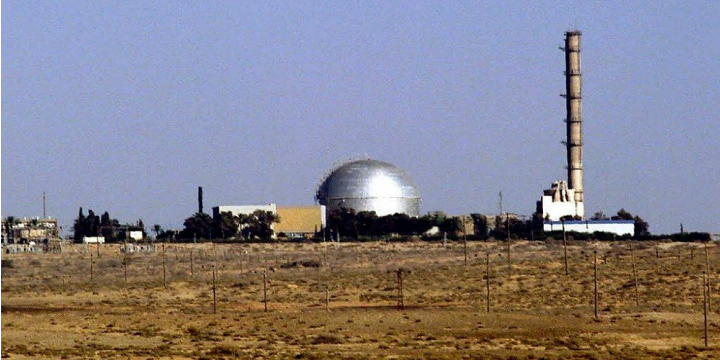In conflict, short-term operational success doesn’t essentially assist long-term survival outcomes.
Regardless of reaching its rapid objectives in the course of the “Twelve-Day Struggle,” Israel will nonetheless need to make substantial deterrence coverage modifications. Probably, the Jewish State, smaller than America’s Lake Michigan, now faces better perils than earlier than the newest conflict.
How can this be doable? Didn’t the mixed results of Israeli and American bombings “obliterate” Iran’s nuclear army risk?
There’s a succinct reply. Although this risk has been degraded, it has not been eliminated. In assorted increments, Iran might return to the place it was earlier than the conflict, after which advance additional in tangibly quantum leaps. At some stage, already-nuclear state allies of Iran might comply with operate as Tehran’s nuclear surrogate. Right here, each North Korea and Pakistan ought to come rapidly to thoughts.
What’s Israel’s most rapid process? Above all, Jerusalem ought to do no matter is required to improve and improve its nuclear deterrence posture. This posture, which incorporates each doctrine and technique, will depend upon Israel’s decipherable willingness to exchange “deliberate nuclear ambiguity” with “selective nuclear disclosure.”
It’s not nearly reaffirming the plain. Managed nuclear disclosure might be wanted to guarantee Iran and different adversaries (nuclear and non-nuclear) that Israel’s ordnance can be obtainable in any respect ranges of foreseeable army battle.
Because of this Jerusalem might want to make much less ambiguous that its presumed nuclear weapons are seemingly “usable” — that’s, not too-destructive. Although counter-intuitive and misunderstood, viable nuclear deterrence requires weapons which can be recognizably amenable to situational changes and calibrations.
Even after Israel’s latest victories over Iran, it could be unreasonable to imagine that “deliberate nuclear ambiguity” might work indefinitely.
Even when Iran’s nuclear potentialities have been meaningfully set again by “twelve-day conflict” bombardments, there would stay different worrisome enemy states. After the just-halted battle, Pakistan reaffirmed “full solidarity” with Iran. This declaration included specific threats of direct nuclear retaliation towards Israel if Iran have been to face an Israeli nuclear assault. For instance, nuclear North Korea has a historical past of belligerent interactions with Israel and will conceivably serve Iran as a fearsome nuclear proxy.
How do issues stand proper now? Utilizing Cause as decisional criterion, Israel might want to replace its nationwide strategic posture by shifting from “deliberate nuclear ambiguity” to “selective nuclear disclosure.”
If Israel remained dedicated to its “bomb within the basement” nuclear posture, the nation’s intra-war alternatives to realize “escalation dominance” can be severely restricted. Even when Tehran have been to just accept the “usability” of Israel’s nuclear choices, it’d nonetheless not consider that Jerusalem can be keen to train these choices. Because of this, a tit-for-tat dynamic of standard warfare might proceed unabated and Israel may need to face the exhausting prospect of seemingly interminable attrition warfare.
Iran is planning to purchase Chinese language Chengdu J-10C fighter jets appropriate with PL-15 missiles, the identical ordnance utilized by Pakistan’s air pressure. China already assists Iran by shopping for its oil, an enormous profit to Tehran that might speed up resumed efforts to accumulate nuclear weapons. Much less instantly, any deliberate US sale of F-35 stealth fighter jets to Turkey might provide a number of army advantages to Iran.
In essence, Israel can’t rely indefinitely on an implicit nuclear deterrence posture. Relating to any future or impending conflict with Iran, Israel wants to contemplate once-speculative however now not unrealistic situations. Among the many narrative potentialities, Pakistan and/or North Korea might someday change into precise nuclear proxies for a nonetheless non-nuclear Iran. At that time, any Israeli continuance of “deliberate nuclear ambiguity” can be manifestly irrational.
Israel wants to make sure “escalation dominance” in all believable battle situations. Inter alia, it will imply retaining Iran non-nuclear. Though there might be many technical questions on optimum ranges and instances of “selective nuclear disclosure,” this isn’t but the second for elevating such queries.
There may be extra. Even a pre-nuclear Iran might make fight use of radiation dispersal weapons and/or standard missiles/drones launched towards Israel’s Dimona nuclear reactor. In a worst case state of affairs, Iranian ally North Korea would place nuclear belongings at Tehran’s operational disposal. Pyongyang, it needs to be recalled, constructed a nuclear reactor for Syria that was destroyed by Israel’s Operation Orchard on September 6, 2007.
Whereas it’s uncertain that “selective nuclear disclosure” would finish Iran’s belligerent designs towards Israel, a extra selectively-explicit Israeli deterrence posture represents Jerusalem’s solely rational alternative. On the identical time, even this enhanced doctrine and technique won’t be sufficient. It follows that Jerusalem, with or with out its American ally, might someday nonetheless must launch new rounds of measured preemptive strikes.
There may be one remaining remark. The prevailing “temper” in Israel appears against taking the “bomb” out of the “basement.” Although such wariness is comprehensible (“why stir the pot if deterrence is already working”), it fails to take account of adjusting enemy intentions and capabilities. Furthermore, the anticipated advantages to Israel of strategic adjustments to “deliberate nuclear ambiguity” would outweigh the anticipated prices of pressures to affix the Non-Proliferation Treaty (NPT).
Prof. Louis René Beres was educated at Princeton (Ph.D., 1971) and is the creator of many books and scholarly articles coping with worldwide regulation, nuclear technique, nuclear conflict, and terrorism. In Israel, Prof. Beres was Chair of Undertaking Daniel (PM Sharon). His twelfth and newest e book is Surviving Amid Chaos: Israel’s Nuclear Technique (Rowman & Littlefield, 2016; 2nd ed., 2018).


